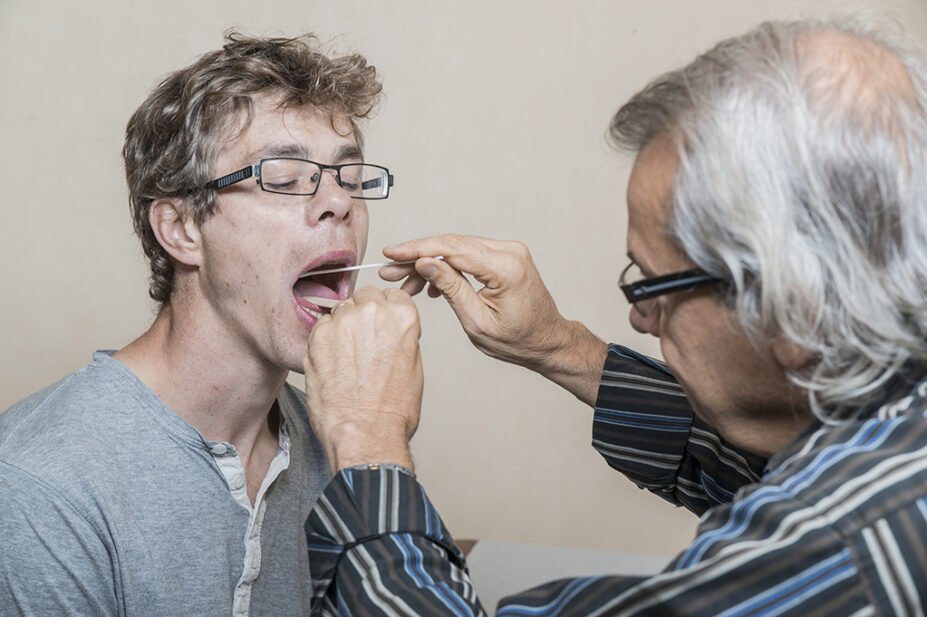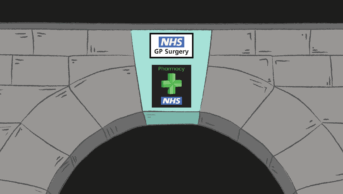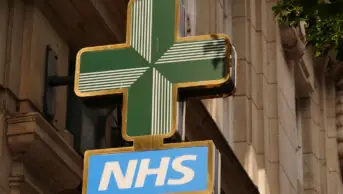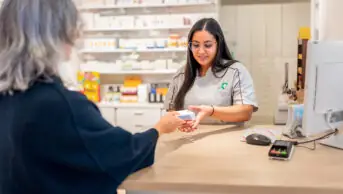
Yves Rousseau / BSIP / SCIENCE PHOTO LIBRARY
Plans to introduce a sore throat test and treat (STTT) service in pharmacies in England appear to have been dropped, The Pharmaceutical Journal has learned.
A freedom of information response to a request for details on whether England would follow Wales in introducing national Strep A testing said: “NHS England is not currently considering a national test and treat service for sore throat.”
NHS England would not comment on whether plans had been scrapped or why.
The Pharmaceutical Journal first reported that a STTT service was being developed in England in May 2021, when it was included in the data standards for IT system suppliers that would enable pharmacy staff to update GP records.
A report from the Professional Records Standards Body (PRSB) at the time discussed the development of a “proposed STTT service” for pharmacies in England, which “has drawn on experience of the Wales STTT service”.
However, a set of slides published on the PRSB website about updated pharmacy IT standards — which are currently out for consultation and originally forecast to be published in spring 2023 — has confirmed that sore throat testing is not included in the standards.
Helga Mangion, policy manager at the National Pharmacy Association, commented: “No-one should have to wait to see a doctor for the treatment of minor ailments. Offering test and treat for sore throats in pharmacies would make the patient journey more convenient in England, as it is already in Wales.
“Such a development would be consistent with the broader ‘Pharmacy First’ approach we advocate, which improves access and allows pharmacists to apply their professional skills to complete more episodes of care in the pharmacy.”
STTT in Wales began as a pilot in 2018 before it was announced in November 2019 that it was being rolled out to all health boards. The swab aspect of the service was temporarily suspended during the COVID-19 pandemic before being reintroduced.
Under the scheme, patients with a sore throat are offered a rapid antigen test to determine if the infection is viral or bacterial before being offered advice on self-care or prescribed antibiotics.
The evaluation of the 2018 pilot showed that almost 94% of patients seen would have sought an appointment with a GP had the service not been available. Only 20% of patients required a supply of antibiotics.
Almost all patients who provided feedback on the service said that they would return to the pharmacy instead to trying to see a GP next time they had a sore throat.
Researchers found that removing point-of-care testing from the STTT service during the COVID-19 pandemic significantly increased the proportion of patients with sore throats who were given antibiotics.
Their analysis showed that antibiotic supply increased from 27% of patients under the STTT service between November 2018 and September 2019, to 63% of patients between November 2020 and May 2021.
The researchers concluded that community pharmacy point-of-care testing for sore throat could lead to a reduction of 36 courses of antibiotics for every 100 consultations.
In Wales, during the Strep A outbreaks in 2022, there was an increase in pharmacy-based STTT consultations, with those evaluating the service telling the The Pharmaceutical Journal there were 7,000 patients seen in December 2022.
The Pharmaceutical Services Negotiating Committee declined to comment on any discussions about introducing a STTT service in England.


